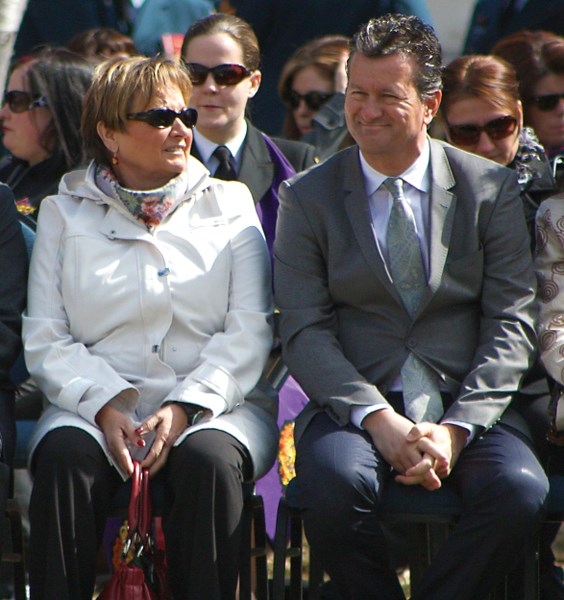Over the past several years, Cold Lake's mayor and councillors have been doing whatever they can to champion the idea of amalgamating municipalities and forming regional governments and late last month, their hard work finally started to pay off, as the City's “regional government resolution” passed at the AUMA (Alberta Urban Municipalities Association) convention with a near two-thirds majority.
The resolution, co-signed by both the Town of Bonnyville and the Town of St. Paul, passed by 63 per cent of the voting municipalities across Alberta, and encourages the provincial government to create legislation that will provide incentives and financial support to communities to encourage municipal amalgamation.
Speaking to the Nouvelle last week, Cold Lake Mayor Craig Copeland said he was excited to see the resolution passed so comfortably – a sign he believes points towards a desire for change in Alberta.
“We as a council were very happy to see this resolution passed,” Copeland said. “I'll be honest, heading in we weren't too sure where the vote was going to lie, but we all gave each other a high five and a had a smile on our faces once the results were released.”
He added, “Looking back at it all, the biggest satisfaction for us is that the Town of Bonnyville and the Town of St. Paul joined us and supported the resolution from a regional perspective. That speaks volumes for the fact that they look at this as a future way of providing a better level of service for our residents in both our urban and rural areas.”
Having studied and researched amalgamation success stories such as the one in Strathcona County, Copeland felt it was time to spark conversations across the province regarding the potential benefits of a more regionalized government.
“This resolution was designed to get conversations going. There are communities out there that want to amalgamate and I believe we should be encouraging our provincial government to look into providing incentives to communities that want to progress.”
He added, “That's all this resolution is. This isn't designed to force amalgamation, this is supposed to provide a platform to those communities across Alberta that think amalgamation is the right thing for them moving forward.”
Copeland considers the City of Cold Lake to be one of those municipalities that believes in the merits of amalgamation and he once again pressed home his belief that a smaller, more regionalized government would benefit everybody in the Lakeland.
“I've always felt our council has been on this page for many, many years. In order to provide a better level of government, better decision making processes and better spending habits, amalgamating our municipal governments is the right choice. It would make things better for everybody.”
Town of Bonnyville councillor Ray Prevost has long been an advocate of regional government and he said he was “quite pleased” to see the resolution supported at the AUMA last month.
“I think Mr. Copeland from Cold Lake did an awesome job getting this resolution to the floor and getting it passed by the margin he did – I'm quite pleased to see it succeed,” Prevost said. “The resolution, the way it is written, does not force amalgamation, it simply provides those municipalities that wish to do so a platform with which to pursue it.”
He added, “Personally, I think all the resolution is asking for is to provide some dollars, some incentives to municipalities that wish to amalgamate or become a special municipality. This thing was supported by a lot of communities, mostly urban municipalities, because they're the ones struggling. I think the reality is that this was passed because people think there should be a change here, either in revenue sharing or distinct municipality systems.”
While he has spoken favourably about the possibility of amalgamation in the past, Prevost was careful not to commit one way or another last week, saying he'd have to see “all the information” and “all the cons and merits” before doing so.
“People cannot say yes or no without knowing all the facts and information, and I won't say yes or no until I see the facts,” Prevost said.
Having co-signed the resolution along with Bonnyville and Cold Lake, St. Paul Mayor Glen Anderson echoed words spoken by Copeland, stating this would now give municipalities the realistic option of amalgamating into a more regionalized government.
“Our council co-sponsored this thing and so of course we're very pleased to see it passed,” Anderson said. “What this does is open up some new thinking now, with the (Municipal Government Act) under review, to work together and work together cooperatively.”
He added, “This will give municipalities more of an incentive to put more effort into working together and, if the opportunity does arise with regards to regionalization, the only people that will benefit at the end of the day are the taxpayers.”
“If you look at the situation here in St. Paul, we have a population of 14,000 in an entire county that encompasses the Town of St. Paul, the County of St. Paul and the Town of Elk Point, but we have 19 elected officials from those three municipalities. When you consider that the federal government has one elected official for an area with 105,000 residents, you start to put things into perspective.”
“If this can help people to work together more while at the same time having the provincial government offering incentives to make it work, the big winners are going to be the people.”
With the resolution now officially passed, the AUMA will be tasked with approaching the province to try and encourage them to create legislation to provide incentives to communities looking to amalgamate.



